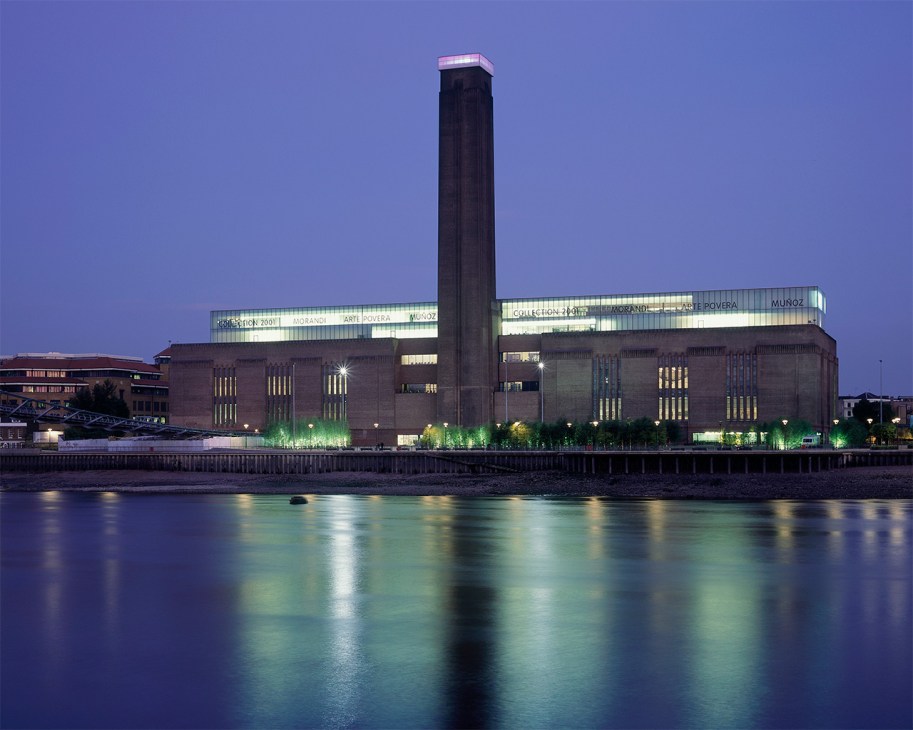Tate “Late” returns. An alarming reminder that London’s nightlife is fast asleep
Whoa, there! Steady on! London’s Tate Modern has only gone and extended its weekend opening hours and I already feel as though I’m in a deliciously weird fever dream of a night in which art, life, bodies and sensations are mixed into a dizzying trance. The breathless rush of raving in the Turbine Hall, a giggling fit in a mirrored elevator, a restorative rendezvous behind a great limb of industrial architecture, a last tearful gasp on the balcony while gazing at that panoramic view of the city – oh, to be alive! Alive at… Hang on… 21.00?
Well, perhaps it’s a start. From the end of September, safely away from summer’s clutches, Tate Modern will close at 21.00 on Friday and Saturday evenings. It’s a reclamation of pre-pandemic opening hours – and this is after a few wild summer nights when the institution shut at 22.00. I mean, it’s understandable: any later and the gallery would doubtless be dispatching spiral-eyed art lovers into the seamiest of urban underworlds, where people are still ordering their main courses, half an hour into Superman at the Picturehouse or, say, leaving that notorious den of iniquity, the All England Lawn Tennis Club at Wimbledon, where play might just have stopped for the day and ladies in strawberry-themed hats are checking the train times to Godalming.

I know. Tate Modern is a successful museum tentatively embracing the evening, not a failed Berghain. We shouldn’t confuse one with the other. But it begs a hoary old question: what is it about London and late nights? Have we become scared of the dark? Last September the Night Time Industries Association found that 37 per cent of UK nightclubs had closed since 2020, a figure surely linked to the coronavirus pandemic but probably also related to young people falling out of love with having a drink. Another survey looking at the period from 2011 to 2021 found that 38 per cent of people aged between 16 and 24 hadn’t had a single alcoholic drink in a year. Are those former “youngsters” – now surely in their forties – generally abstemious? Is it all dungarees and self-actualisation? After all, there are quite a few ways of relaxing of a weekend that aren’t related to boozefulness but neither are they much to do with mindfulness. The dark web? It certainly isn’t afraid of the dark.
Back in 2003 the UK passed the Licensing Act, which the then-prime minister, Tony Blair, hoped would promote a European-style all-hours café culture (but was demonised in the press as an invitation to binge-drink 24/7). A decade later, however, it emerged that UK alcohol consumption had dropped 17 per cent since then. Businesses had smaller takings over longer nights, which now required Swat-team-like extra security. The law, it seemed, had ended up promoting a more Soviet-style café culture. Bread queues and headscarves all round!
Flippancy aside, London’s late-night problem has long been officially acknowledged. The position of Night Czar, originally inaugurated in Amsterdam, was much discussed, mocked and finally supported. Amy Lamé was installed in the post in 2016 and quit last year after a tenure that saw almost half of London’s nightclubs close. Again, this was partly because the P-word had wreaked its havoc. But in the end you’d probably expect someone whose job it was to help nightlife out of a major rut to have achieved more. How fortunate that her surname featured that accent on the “e”. By contrast, the art world has been putting on the 21st century’s best parties. London in Frieze week is still a bit like Miami when Art Basel first rocked up or even Mexico City when it launched the Jumex Collection. London was taking all that Damien’n’Tracey excess to the bank but it was also learning, dealing, scribbling down phone numbers, jotting quotes, making a mint. It was working. And in the art world, the commercial and the institutional have never been closer – so maybe the wrong side is in charge of the outreach and party planning.
In the meantime, we’d better get started early. I’ll see you in the bathroom: I’ve got a nice little bag of matcha-latte powder that’ll blow your mind.
Robert Bound is the presenter of Monocle Radio’s ‘Monocle on Culture’. For more analysis and insight, subscribe to Monocle today, or click here to read more from Bound.



